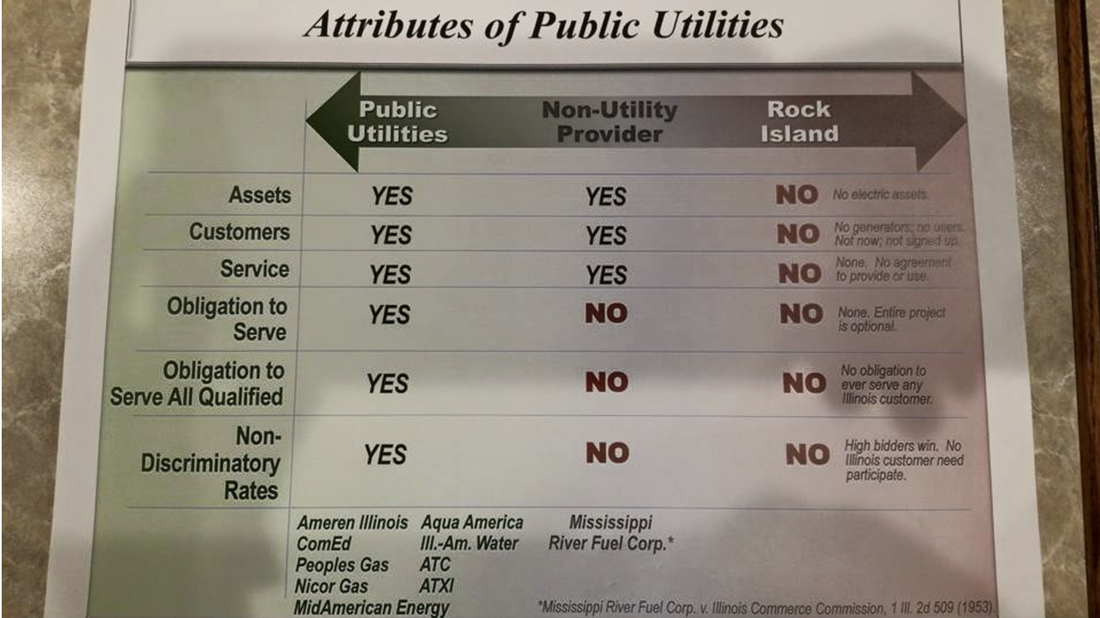Missouri Landowners Alliance triumphs once again in their reply brief...
The MLA respectfully contends that the type of “need” created by Grain Belt in inducing MJMEUC to buy its product is not a true “need” for the service in the sense envisioned in the Tartan case. By analogy, it seems safe to say that not every family in Jefferson City truly “needs” to own a Cadillac. But if a dealer were for some reason to offer a Cadillac to everyone in the City for say $5.00, would the fact that virtually every family in the City was now driving a Cadillac suddenly prove there really was a “need” for those cars after all?
To the contrary, the MLA submits that actual “need” for any product cannot be artificially created by practically giving it away, as Grain Belt has done here. “Need” is not the same as “Want”.
It's always been obvious that MJMEUC is only onboard the Grain Belt Express for pure and simple greed. MJMEUC's analysis of how much it would "save" in this deal isn't even logical.
To begin with, the only meaningful means to determine what MJMEUC might have saved by using the Grain Belt line is to compare MJMEUC’s total cost of power from that line to MJMEUC’s next best alternative at the time it signed the contract with Grain Belt. The problem is, before MJMEUC signed the TSA with Grain Belt, it did not bother to solicit bids from any other party to replace the expiring Illinois coal contract. Therefore, neither MJMEUC nor anyone else will ever know what the best alternative would have been to signing the TSA with Grain Belt.
For the above reasons, the MLA respectfully submits that Grain Belt failed to prove that the need for the line in Missouri is anything but an illusion of its own making.
MLA also tackles the audacity of GBE, who presumes the PSC will necessarily be obligated to approve its sale to Invenergy because it has relied on the finances of Invenergy to issue a permit to GBE.
In short, all of the cases cited by Grain Belt on this issue merely support the reliance on the resources of Clean Line, and not those of a third party with no ownership in the Applicant. Thus based on Grain Belt’s own analysis, it is asking the Commission to take a position here for which there apparently is no precedent.
A more fundamental problem with Grain Belt’s argument on this point is that it is once again taking for granted that future decisions of the Commission will be made in Grain Belt’s favor. Specifically, before the sale of Grain Belt to Invenergy may close, those parties need not only the CCN in this proceeding, but also the permission of the Commission for the sale of the Grain Belt project to Invenergy in a case which has yet to be filed. If that sale is not approved, then of course Grain Belt never gains access to the resources of Invenergy. Thus in asking the Commission to decide the two Tartan criteria on the basis of Invenergy’s expertise and stronger financial status, they are necessarily asking the Commission to assume that it will later approve the sale of Grain Belt to Invenergy. And this request is being made by Grain Belt before the Commission has even seen or heard a word of evidence in the case which will decide that issue.
This is particularly presumptuous on Grain Belt’s part, in that they have stated unequivocally that the Commission does not even have the authority to approve the proposed sale which they now take for granted will be approved.
Even if Grain Belt successfully manages to disavow its earlier position, which seems unlikely, it is totally inappropriate for Grain Belt to even suggest to the Commission that it should assume it will approve the sale of Grain Belt to Invenergy before that case is even filed.
Despite the prognoses of what the Commission will do in some unfiled case, as matters now stand there is no basis for granting a CCN to the Applicant on the basis of speculation about its possible access to Invenergy’s resources.
And then there's the issue of whether or not Grain Belt Express is economically feasible. When it was supposed to connect with the PJM market at least there was a pretense that it could, hypothetically, be feasible if buyers in PJM wanted to pay high prices for service. But reality is that Grain Belt Express is not going to get anywhere near PJM any longer. It absolutely WILL NOT be approved through Illinois. There's too much judicial history here that cannot be avoided. The court didn't believe that an entity that did not serve all customers equally could be a public utility under state law and existing precedent. It doesn't matter how much "utility property" GBE wants to buy in Illinois, it cannot be a public utility because of its business plan and rate scheme. End of story.
This is an argument that Staff, GBE and its sycophants are pretending not to understand. Either you're all as dumb as a post, or you're merely pretending not to understand in the hopes of leading the Commission astray from the real argument. You don't have anything, anything at all, to counter MLA's argument that GBE is not a public utility, do you?
Here it is again... right here. Read carefully.
2. A public utility must charge the same rate to all similarly situated customers. It cannot charge different rates to identical customers.
Grain Belt supports its position on this issue primarily with broad generalizations about the market for wind generation. And while it contends that “the economic feasibility of the Project continues to be strong”, it does not even attempt to make a case for the economic feasibility of the Missouri segment of the line, without access to the PJM market.
As the MLA and Show Me discussed in their initial brief on remand, there is a definite possibility that the line will ultimately terminate in Missouri, thereby precluding access to the very markets which could make the project economically feasible.
As the NRDC and Sierra Club suggest, Missouri might be a “loss leader” for Grain Belt. But as they then note, according to the concurring opinion the project relies for its economic viability on the higher prices in the PJM market. But of course if the project cannot reach the PJM market, it is left only with the loss leader segment of the line in Missouri.
I'm really finding it hard to believe that Invenergy wants to own a transmission project where it may sell capacity to its competitors and enable them to reach the more profitable PJM markets with their generation. Invenergy would have to be completely idiotic to do that. But yet the Commission is being asked to believe this story. Invenergy may be called a lot of things by its opponents, but stupid has never been one of them.
So now this mess is in the hands of the Missouri PSC. Ample support has been provided to deny the application. The only thing approval would bring is another expensive trip through the courts. How much are the taxpayers of Missouri supposed to spend entertaining this greedy project? Stop the bleeding.



 RSS Feed
RSS Feed